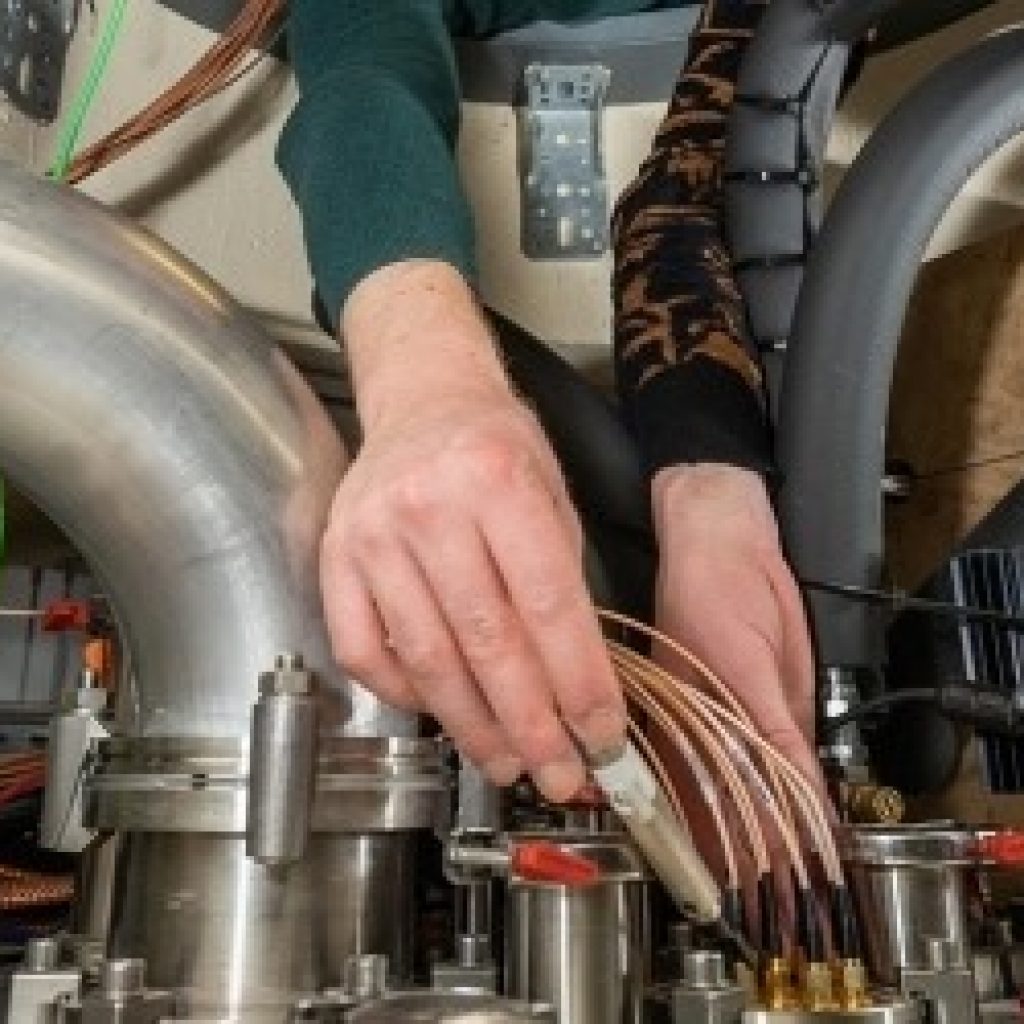(SpectrumIEEE) Two research groups say they’ve independently built quantum devices that can operate at temperatures above 1 Kelvin—15 times hotter than rival technologies can withstand.
A team led by Andrew Dzurak and Henry Yang from the University of New South Wales in Australia performed a single-qubit operation on a quantum processor at 1.5 Kelvin. Separately, a team led by Menno Veldhorst of Delft University of Technology performed a two-qubit operation at 1.1 Kelvin. Jim Clarke, director of quantum hardware at Intel, is a co-author on the Delft paper. Both groups published descriptions of their devices in Nature.
NOTE: The upcoming Inside Quantum Technology (IQT) events in NYC and the Netherlands are jointly organized by QuTech & 3DR Holdings.
The devices reported in Nature compute using silicon spin qubits. These qubits are particularly appealing to semiconductor makers such as Intel because devices based on them could be produced using modern semiconductor manufacturing techniques.
“To me, these works do represent, in rapid succession, pretty big milestones in silicon spin qubits,” says John Gamble, a peer reviewer for one of the papers and a senior quantum engineer at Microsoft. “It’s compelling work.”
While Intel is also studying superconducting qubits, Clarke says the company is now focusing most of its research efforts on silicon spin qubits. “The spin qubits look a lot like transistors,” he says. “And Intel ships 400 quadrillion transistors a year.”
